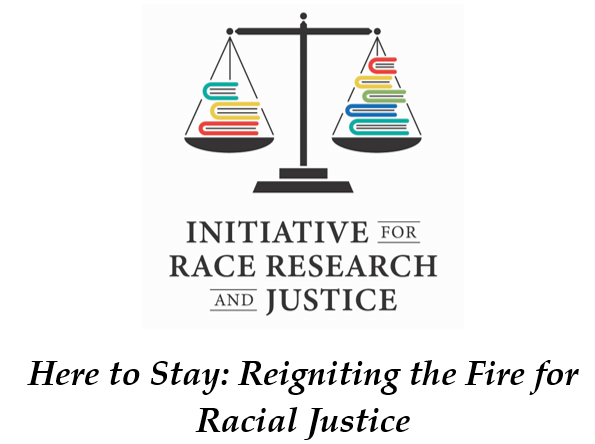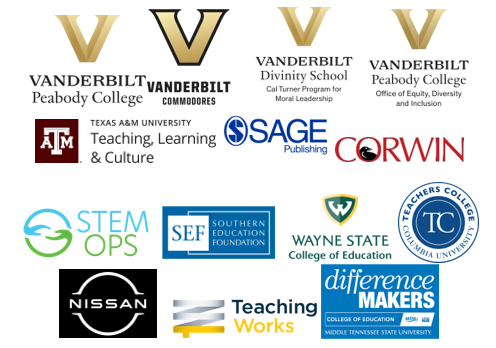The Initiative for Race Research and Justice Presents:
2023 Jumpstart Virtual Conference
Here to Stay: Reigniting the Fire for Racial Justice
Date: Tuesday, July 25, 2023, 9:00am - 4:00pm CST
Registration Fee: $60 General Admission, $30 Undergraduate/Graduate Students
(Book Included with Registration and Attendance)
Keynote Speakers
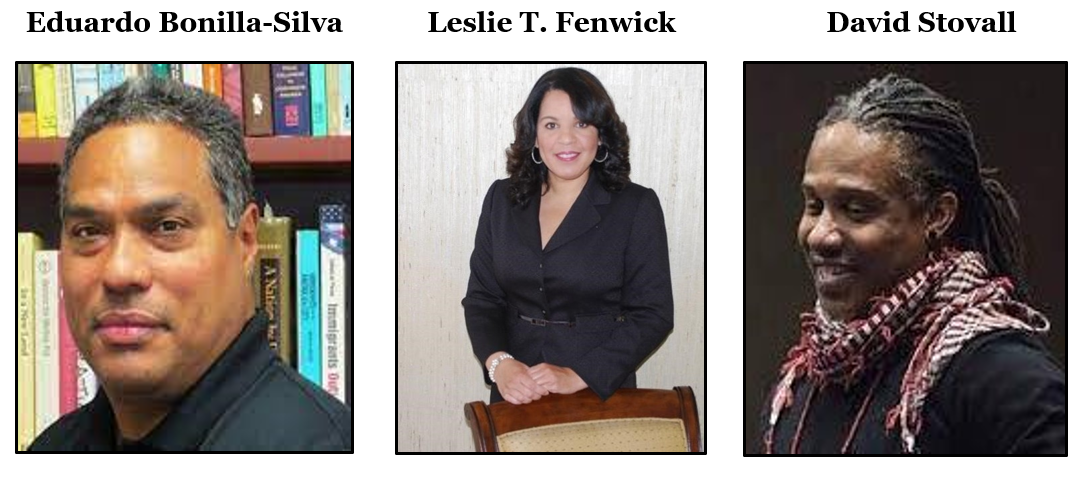
Eduardo Bonilla-Silva, PhD, is the James B. Duke Distinguished Professor of sociology at Duke University. He received his BA in Sociology with a minor in Economics in 1984 from the Universidad de Puerto Rico-Río Piedras campus. He received his MA (1988) and PhD (1993) from the University of Wisconsin, Madison. He worked at the University of Michigan (1993-1998), Texas A&M University (1998-2005), and has been at Duke University since 2005.
He gained visibility in the social sciences with his 1997 American Sociological Review article, “Rethinking Racism: Toward a Structural Interpretation,” where he challenged analysts to study racial matters structurally rather than from the sterile prejudice perspective. His book, Racism Without Racists (6th edition, 2022), has become a classic in the field and influenced scholars in education, religious studies, political science, rhetoric, psychology, political science, legal studies, Africana Studies, and sociology.
Leslie T. Fenwick, PhD, is noted for her expertise in public policy, character leadership, and ethics. A lifelong educator who has worked in every sector of education, Dr. Fenwick is known as a “fearless voice” for educational equity and equal opportunity. In 2020, she was a finalist for the U.S. Secretary of Education post. Additionally she is a U.S. Presidential appointee to the Board of Visitors for the U.S. Military Academy at West Point (USMA) where she has served since 2017 as a MCLC Senior Fellow occasionally lecturing about character leadership and ethics.
A former Harvard University Visiting Scholar and Visiting Fellow, and Salzburg Global Fellow, she is author of the award-winning and bestselling book Jim Crow’s Pink Slip (Harvard Education Press, 2022). Jim Crow’s Pink Slip has been referenced by the New York Times and is an NPR Book of the Day. It is also winner of the 2023 Gloria Ladson-Billings Outstanding Book of the Year Award. And, is an Amazon #1 Bestseller in Education History. Dr. Fenwick is recipient of the WEB DuBois Higher Education Leadership Award for her national efforts to expand equal educational opportunity and access to higher education.
David Stovall, PhD, is a professor in the department of Black Studies and in the department of Criminology, Law & Justice at the University of Illinois at Chicago (UIC). His scholarship investigates three areas 1) Critical Race Theory, 2) the relationship between housing and education, and 3) the intersection of race, place and school. In the attempt to bring theory to action, he works with community organizations and schools to address issues of equity, justice and abolishing the school/prison nexus.
His work led him to become a member of the design team for the Greater Lawndale/Little Village School for Social Justice (SOJO), which opened in the Fall of 2005. Furthering his work with communities, students, and teachers, his work manifests itself in his involvement with the Peoples Education Movement, a collection of classroom teachers, community members, students and university professors in Chicago, Los Angeles and the San Francisco Bay Area who engage in collaborative community projects centered in creating relevant curriculum. In addition to his duties and responsibilities as a professor at UIC, he also served as a volunteer social studies teacher at the Greater Lawndale/Little Village School for Social Justice from 2005-2018.
Follow us @ RaceResearch


Opening Keynote Lecture: 9:00am-10:30am CST: David Stovall
Talk Title: You Have Been Prepared for the Fight, But Will You Fight?: Racial Justice in the "Now" Times
Talk Description: Given the current attacks on critical engagement in k-12 and higher education institutions, we find ourselves in the midst of a fundamentalist attack on the right to ask uncomfortable questions. By revisiting the history of Black, Latinx, Indigenous, and Asian/Pacific Islander communities on Turtle Island (the United States), we soon realize that we have been prepared by our ancestors for this challenge. The issue, however, is to what extent will we resist neoliberal racialized capitalism, fear mongering and other idle threats to engage the work of racial justice?
Keynote Lunch Lecture: 12:00pm-1:00pm CST: Eduardo Bonilla-Silva
Talk Title: WHY WE SING THE INTEGRATION BLUES: How Systemic Racism Structures “Integrated” Educational Settings
Talk Description: Why is it that almost 70 years after Brown v. Topeka we are still suffering from serious race-based inequalities in our educational system? The answer lies in the fact that we never truly integrated or, more significantly, addressed structural race-based inequalities. Hence, people of color in “integrated” schools or other settings sing the integration blues as they feel the deep pain and alienation caused by inclusive exclusion. To make my case, I will first outline what a good theory of systemic racism should include and explain the import in the racial edifice of RWFs (regular White folks). Second, I will discuss the nature of the “new racism” or the racial regime in place since the 1970s. Third, I will describe how systemic racism becomes embedded in organizations such as colleges and universities as well as schools. Lastly, I will address what can be done to move the current DEI project towards a deep diversity agenda with a clear antiracist and racial justice goal.
Closing Keynote Lecture: 2:30pm-4:00pm CST: Leslie T. Fenwick
Talk Title: Living with Histories We Do Not Know
Talk Description: Why is it that almost 70 years after Brown v. Topeka we are still suffering from serious race-based inequalities in our educational system? The answer lies in the fact that we never truly integrated or, more significantly, addressed structural race-based inequalities. Hence, people of color in “integrated” schools or other settings sing the integration blues as they feel the deep pain and alienation caused by inclusive exclusion. To make my case, I will first outline what a good theory of systemic racism should include and explain the import in the racial edifice of RWFs (regular White folks). Second, I will discuss the nature of the “new racism” or the racial regime in place since the 1970s. Third, I will describe how systemic racism becomes embedded in organizations such as colleges and universities as well as schools. Lastly, I will address what can be done to move the current DEI project towards a deep diversity agenda with a clear antiracist and racial justice goal.
Please mark your calendar for Tuesday, July 25, 2023 from 9:00am – 4:00pm CST for our virtual conference on Racial Justice in Education and Society.
Below is the agenda for the day.
9:00am-10:30am CST: Welcome/Opening Keynote Lecture: David Stovall- all participants
10:45am-11:45am CST: Breakout sessions where participants will join a session based on interests.
- Administration/Leadership in Higher Education and the Current Climate in the US: Olga Welch and Carolyn Hodges *This session is sold out*
Classroom Management Special Education and Hip Hop: William Hunter *This session is sold out*
- Disrupting Education Censorship in K-12/Higher Ed: Takeru Nagayoshi, Tracey Nance, Monica Washington, & Natasha Wilkins *This session is sold out*
- Don't Let Them Distract You: Teaching Truths Through a Black Historical Consciousness Lens: LaGarrett King *This session is sold out*
- Higher Ed and Undocumented Students: Cinthya Salazar
- (Re)membering Who We Are: An Exploration of Black Women Teachers: Mariah Deans Harmon
School Leadership and the Current Climate of Racial Justice Work in the U.S.: April Peters Hawkins *This session is sold out*
- Supporting the Learning and Development of Black Student-Athletes: Dr. Daniel J. Thomas III
- The Supreme Court, Race, Education, and America: Matthew Shaw *This session is sold out*
- Teaching and Learning in Prison Contexts: Chris Etienne
12:00pm-1:00pm CST: Keynote Lunch Lecture: Eduardo Bonilla-Silva -all participants
1:15pm-2:15pm CST: Breakout sessions where participants will join a session based on interests.
- Administration/Leadership in Higher Education and the Current Climate in the US: Olga Welch and Carolyn Hodges *This session is sold out*
Classroom Management Special Education and Hip Hop: William Hunter
- Disrupting Education censorship in K-12/Higher Ed: Takeru Nagayoshi, Tracey Nance, Monica Washington, & Natasha Wilkins *This session is sold out*
- Don't Let Them Distract You: Teaching Truths Through a Black Historical Consciousness Lens: LaGarrett King
- Higher Ed and Undocumented Students: Cinthya Salazar
- (Re)membering Who We Are: An Exploration of Black Women Teachers: Mariah Deans Harmon
School Leadership and the Current Climate of Racial Justice Work in the U.S.: April Peters Hawkins *This session is sold out*
- Supporting the Learning and Development of Black Student-Athletes: Dr. Daniel J. Thomas III
- The Supreme Court, Race, Education, and America: Matthew Shaw *This session is sold out*
- Teaching and Learning in Prison Contexts: Chris Etienne
2:30pm-4:00pm CST: Final Keynote Lecture and Closing: Leslie T. Fenwick - all participants
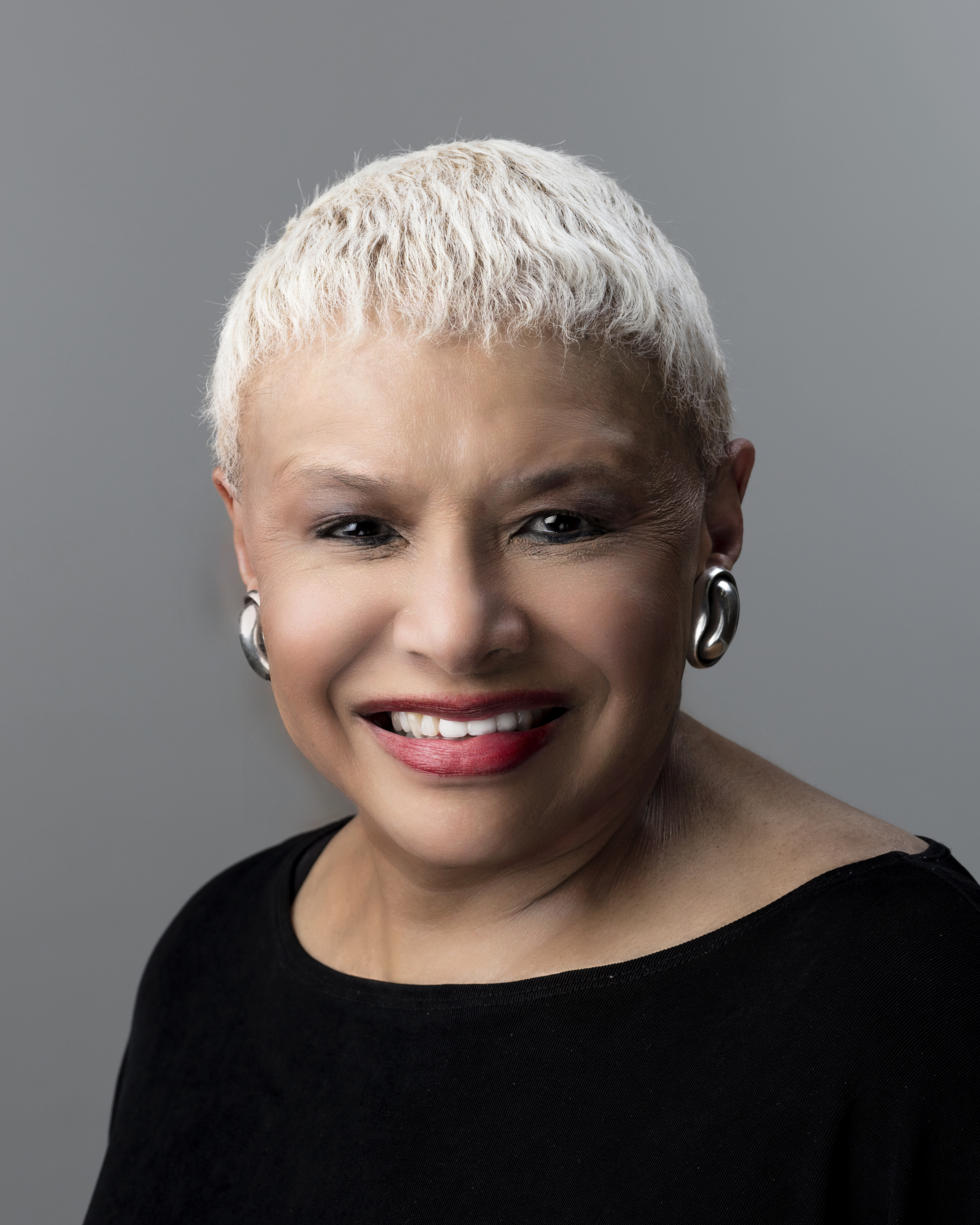 | 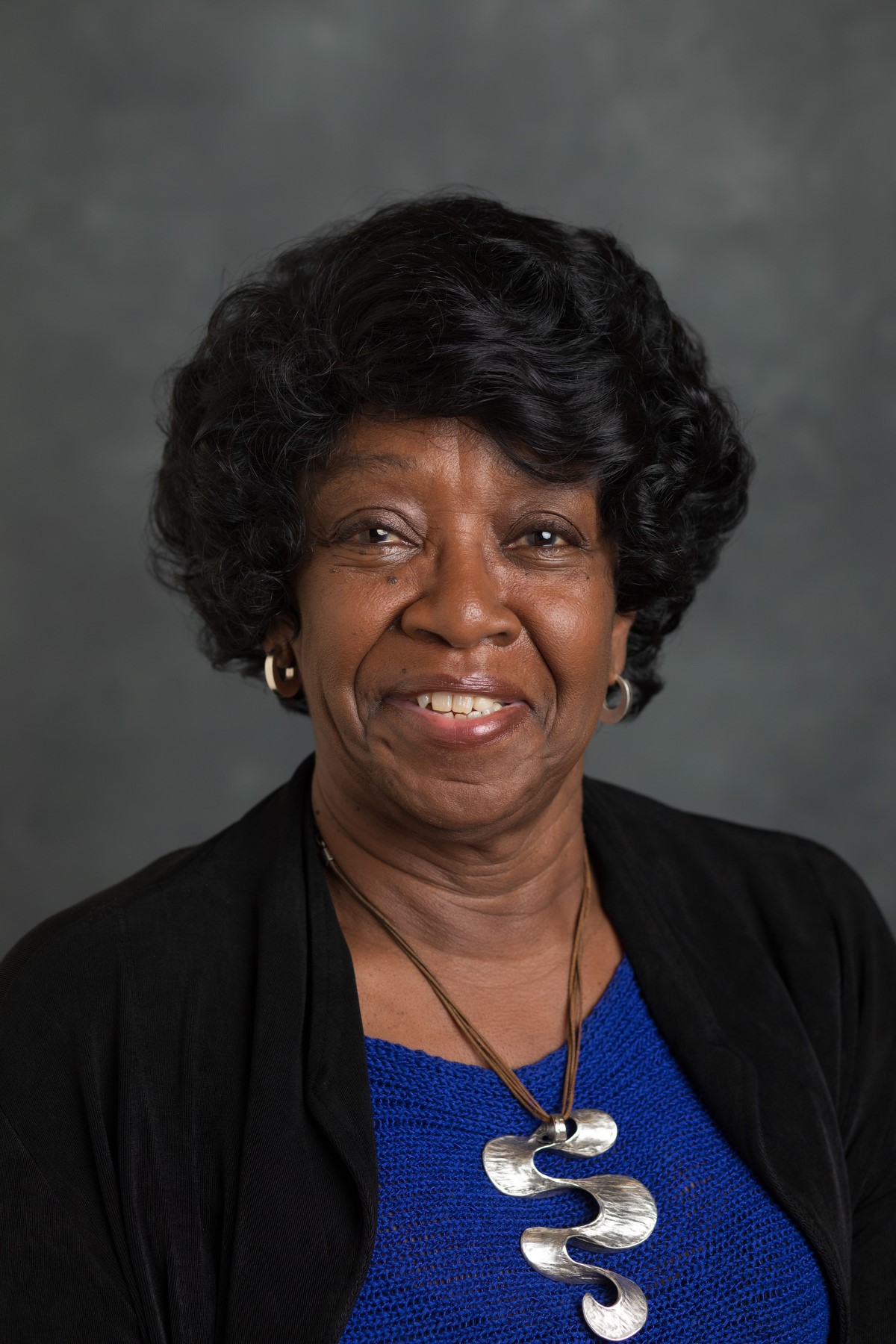 |
Olga M. Welch is Professor of Instructional Leadership Emerita and Dean Emerita, School of Education, Duquesne University. Her research focus is educational leadership in secondary schools and higher education. Carolyn R. Hodges is Professor of German Emerita and Vice Provost and Dean Emerita, Graduate School, University of Tennessee, Knoxville. Her research areas are leadership in higher education and Germany and the African diaspora.
Their most recent, co-authored book is Truth Without Tears: African American Women Deans Share Lessons in Leadership (Harvard Education Press, 2018). They are partners in Welch and Hodges, LLC, Higher Education Consultants and Leadership Training.
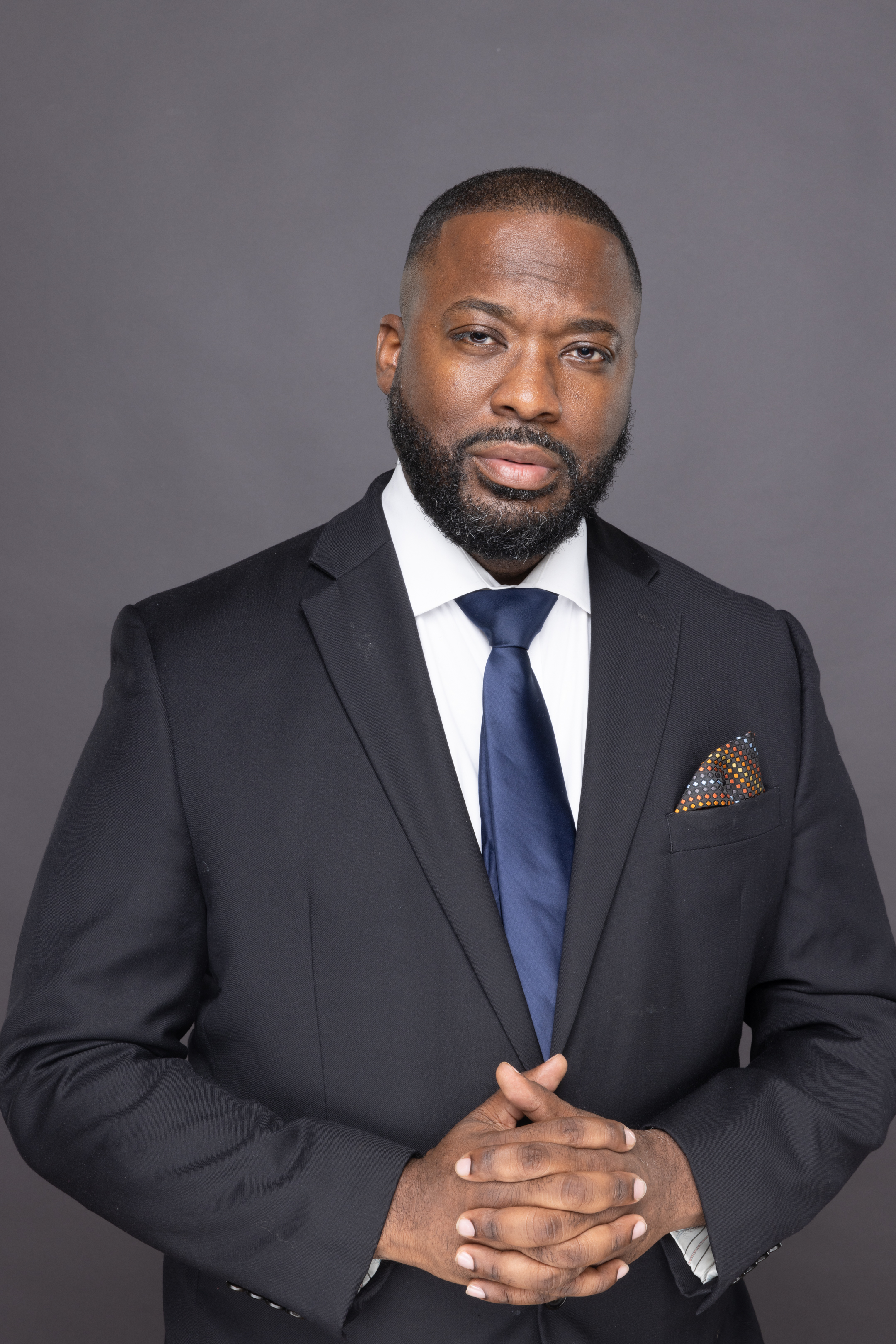
Dr. Will Hunter is currently a Professor of Special Education at the University of Memphis. He also serves as the Principal Investigator (PI) of the West Region Tennessee Tiered Supports Center, University of Memphis. Dr. Hunter received his doctoral degree in special education from the University of Cincinnati. Dr. Hunter’s background includes working as a special education teacher in urban schools located within the Greater Cincinnati area for 12 years and as a special education administrator for 2 years. He has worked mainly with students with mild to moderate exceptionalities and worked as a residential mental health intervention specialist for 9 years at several youth residential facilities. He has authored and co-authored over 45 publications and 100 international, national, regional, and local presentations that includes the topics of Multi-Tiered Systems of Support (MTSS), Culturally Relevant Pedagogy, and Classroom Level Positive Behavior Intervention Supports. Dr. Hunter is on an editorial/lead author team of- The Mixtape Volume 1: Culturally Sustaining Practices within MTSS featuring the Everlasting Mission of Student Engagement. This book explores the integration of hip-hop based education to support students within K-12 inclusive learning communities.

Voices for Honest Education Fellow, National Network of State Teachers of the Year
Takeru “TK” Nagayoshi is the 2020 Massachusetts Teacher of the Year.
A nationally recognized educator and facilitator, his work and voice has been featured in places such as This American Life, The Nation, the Smithsonian and the Federal Reserve Bank. He offers commentary and analysis on K-12 education issues, having written numerous op-eds and featuring in hundreds of panels, podcasts, and other media and speaking engagements. TK also leads training and workshops around the country on topics ranging from teacher leadership, to education policy, and to curriculum and pedagogy at the high school level.
TK has received recognitions such as the Horace Mann Award for Teaching Excellence (2021), Sue Lehmann Excellence in Teacher Leadership Award (2019), Boston University Young Alumni Award (2019), and Sontag Prize in Urban Education (2018). He graduated magna cum laude from Brown University with an honors B.A. in international relations and from Boston University an M.Ed in Curriculum and Teaching.
As a son of Japanese immigrants and a gay person of color, TK helps fight to create an inclusive learning environment that makes every child feel valued and able to reach their full potential.
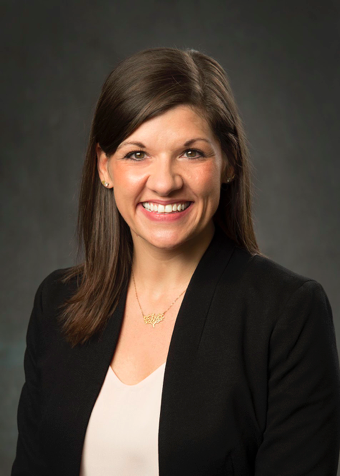
Voices for Honest Education Fellow, National Network of State Teachers of the Year
Tracey Nance is an education and equity advocate, and the 2020 and 2021 Georgia Teacher of the Year. Graduating from The University of Chicago’s Urban Teacher Education Program in 2009, Tracey taught third grade at a Chicago Turnaround School for three years before returning to her native Atlanta where she taught in Atlanta Public Schools as a Fourth Grade Teacher, Interventionist, and Instructional Coach. During her two-year term as Georgia Teacher of the Year, Tracey served on the Georgia School Board as an ex-officio member and traveled the state increasing awareness of both educational equity and the magnitude of teachers’ impact. Tracey continues to advocate for kids and educators through her work with non-profit organizations such as Page Turners Make Great Learners, and is currently serving as a Voices for Honest Education Fellow with the National Network of State Teachers of the Year (NNSTOY). Tracey is thrilled to spend the next year connecting with educators, communities, and policymakers across the country to help ensure that inclusion and teaching truth are central to student learning.
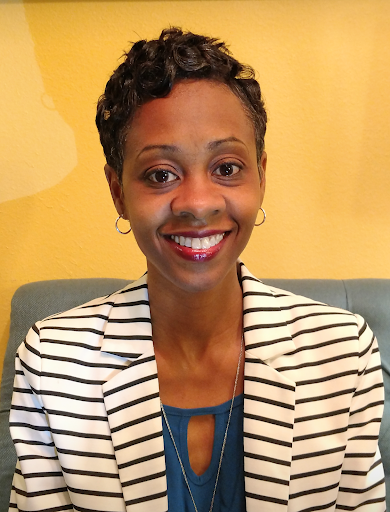
Voices for Honest Education Fellow, National Network of State Teachers of the Year
Monica Washington is an instructional trainer and education consultant supporting teachers and education leaders across the country as they make positive shifts in instruction and leadership. A decorated educator of twenty-five years, Monica has received honors and awards from a wide variety of organizations for her leadership, advocacy, and classroom instruction. She is a 2015 Milken Unsung Hero Fellow and a 2015 NEA Foundation Global Fellow. In addition to instructional coaching, Monica supports educators through workshops, speaking engagements, and blogging for Education Week and Education Post. Her, “4 Things Great Principals Don’t Do,” was the most read and shared Education Week opinion post of 2017. She is passionate about creating equitable and inclusive school environments that celebrate teacher and student voice, and she serves as a Leading Educator Ambassador for Equity for the Education Civil Rights Alliance. Monica was named one of the top 21 rising women of 2021 by Brightbeam. Additionally, she serves on the Board of Directors for the National Education Association Foundation and The National Network of State Teachers of the Year. Monica is the 2014 Texas Teacher of the Year.
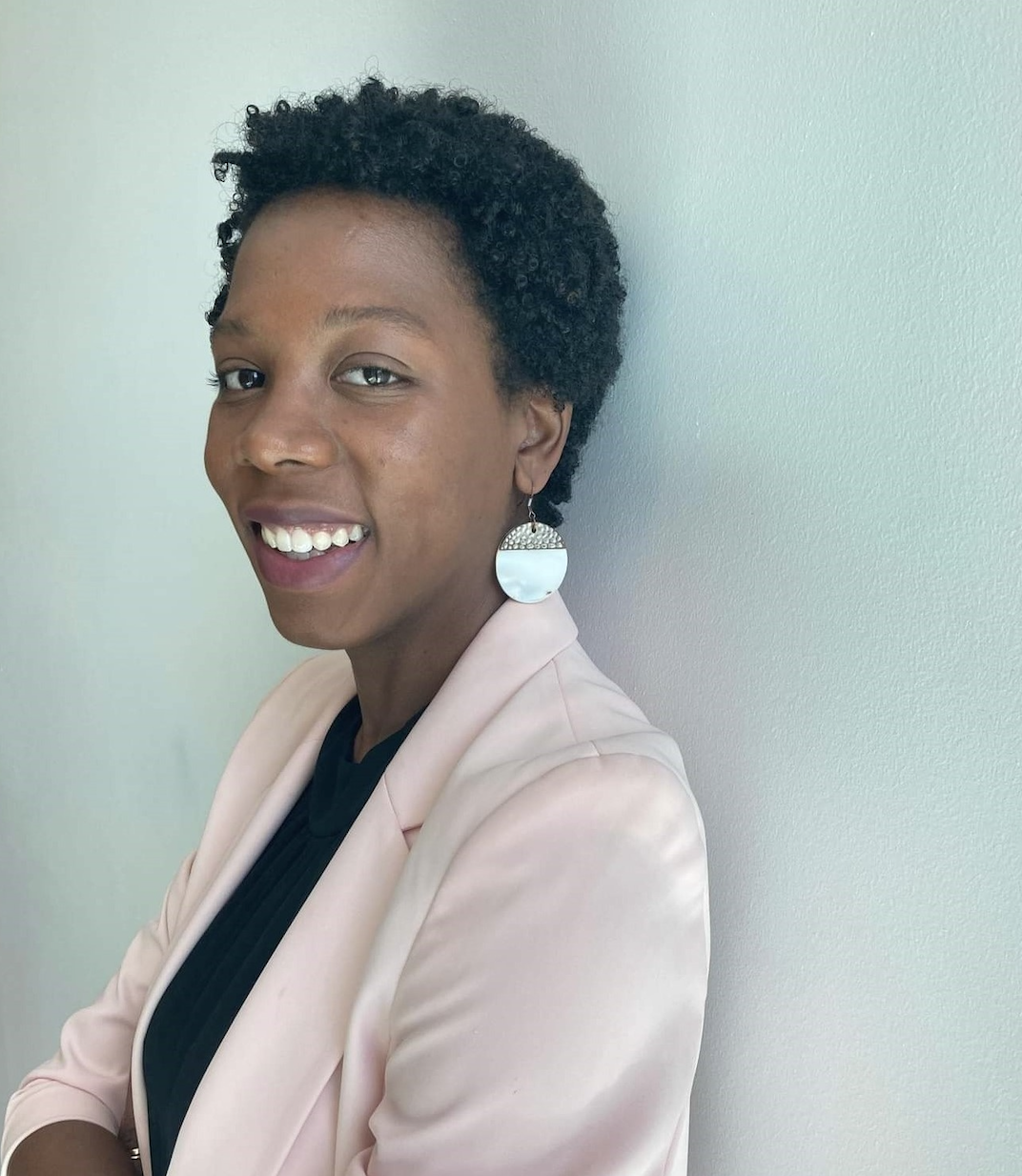
Educator Engagement Manager, National Center for Youth Law
Natasha Wilkins, attorney, advocate, and educator believes every child deserves to have their human and civil rights upheld in systems of education. As the Educator Engagement Manager for the National Center for Youth Law, Natasha trains and supports educators to effectively advocate for equitable student affirming local, state, and federal education policies. Natasha started her career as a high school history teacher in Memphis, TN where she and her students actively advocated for equity and access in their school and in their city. Natasha later obtained her JD to gain a seat at the table to support racial justice in education policy.
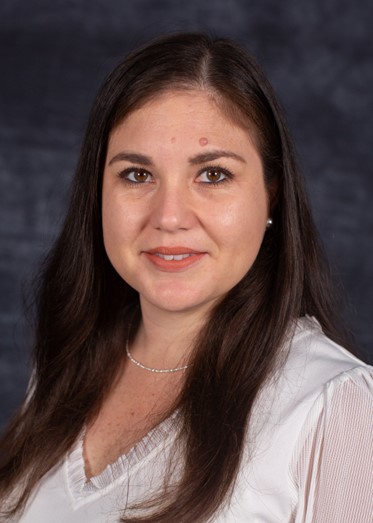
Cinthya Salazar (ella, she) is an Assistant Professor of Higher Education Administration at Texas A&M University. She received her Ph.D. in Higher Education, Student Affairs, and International Education Policy at the University of Maryland in 2020. Dr. Salazar’s research focuses on the mechanisms used by undocumented students to access, persist, and succeed in higher education. She uses participatory action research and engages undocumented students as co-researchers to generate localized student success models that can promote their college retention. Dr. Salazar’s research and pedagogy are informed by her former experiences as a higher education administrator. She worked as a student affairs educator for over eight years, primarily in college access and retention programs. She was a recipient of the prestigious Ford Foundation Dissertation Fellowship in 2019 and the Ford Foundation Postdoctoral Fellowship in 2023. Currently, Dr. Salazar is an active member of the Association for the Study of Higher Education (ASHE), serving as the co-chair for the Presidential Commission on Undocumented Immigrants. She also serves as the Region III representative for the Undocumented Immigrants and Allies Knowledge Community within the National Association for Student Personnel Administrators (NASPA).
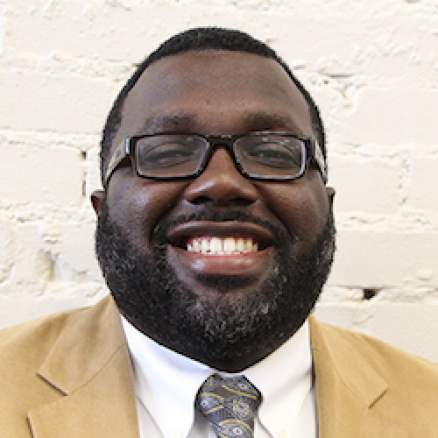
LaGarrett King Jr.
Dr. LaGarrett King is an Associate Professor of Social Studies Education and Founding Director of the Center for K-12 Black history and Racial Literacy Education at the University at Buffalo. Dr. King primary research interest is the teaching and learning in Black history in schools. As a theorist, he also examines racial literacy and other critical theories of race as well as focus on curriculum history and teacher education. He has over 60 publications in journal such as Urban Education, Race, Ethnicity, and Education, Theory and Research in Social Education, and the Journal of Negro Education to name a few. He has published or edited 4 books including his most recent, Teaching Enslavement in American history with Charla Bohan and Robert Baker. He is an award-winning scholar with several early career awards in education as well as his most recent, the Spirit of America Award, given to him through the National Council for the Social Studies for his efforts of improving Black history education nationwide. As a Center Director, he has developed several research projects on Black history education and many professional development programs such as Balck History Nerds Saturday schools and their signature program, The Teaching Black History Conference. While he is a prominent scholar, his heart is dedicated to his wife, Christina, and their two kids, Preston and Presley.
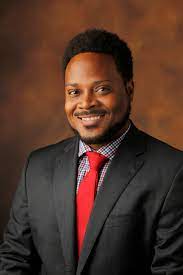
Dr. Matthew Shaw
Matthew Patrick Shaw, J.D., Ed.D., is an assistant professor of law at Vanderbilt Law School and an assistant professor of public policy and education at Vanderbilt Peabody College. He is also an affiliated scholar of the American Bar Foundation. A native of Macon, Georgia, Dr. Shaw earned the International Baccalaureate Diploma before completing a Bachelor of Arts in Romance languages and History at the University of North Carolina at Chapel Hill. After finishing a Juris Doctor at Columbia University, Dr. Shaw clerked for the Honorable W. Louis Sands, United States District Judge for the Middle District of Georgia and practiced law in Atlanta. He earned a Master of Education in Education Policy and Management and a Doctorate in Quantitative Policy Analysis in Education from Harvard University and completed a National Sciences Foundation-funded Law and Social Sciences doctoral fellowship sponsored by the American Bar Foundation and the Law and Society Association before joining Vanderbilt. Recently a Trustee of the latter organization, Dr. Shaw is a Life Member of Alpha Phi Alpha Fraternity, Incorporated and a board member of Conexión Américas, a local immigrant rights and support organization.
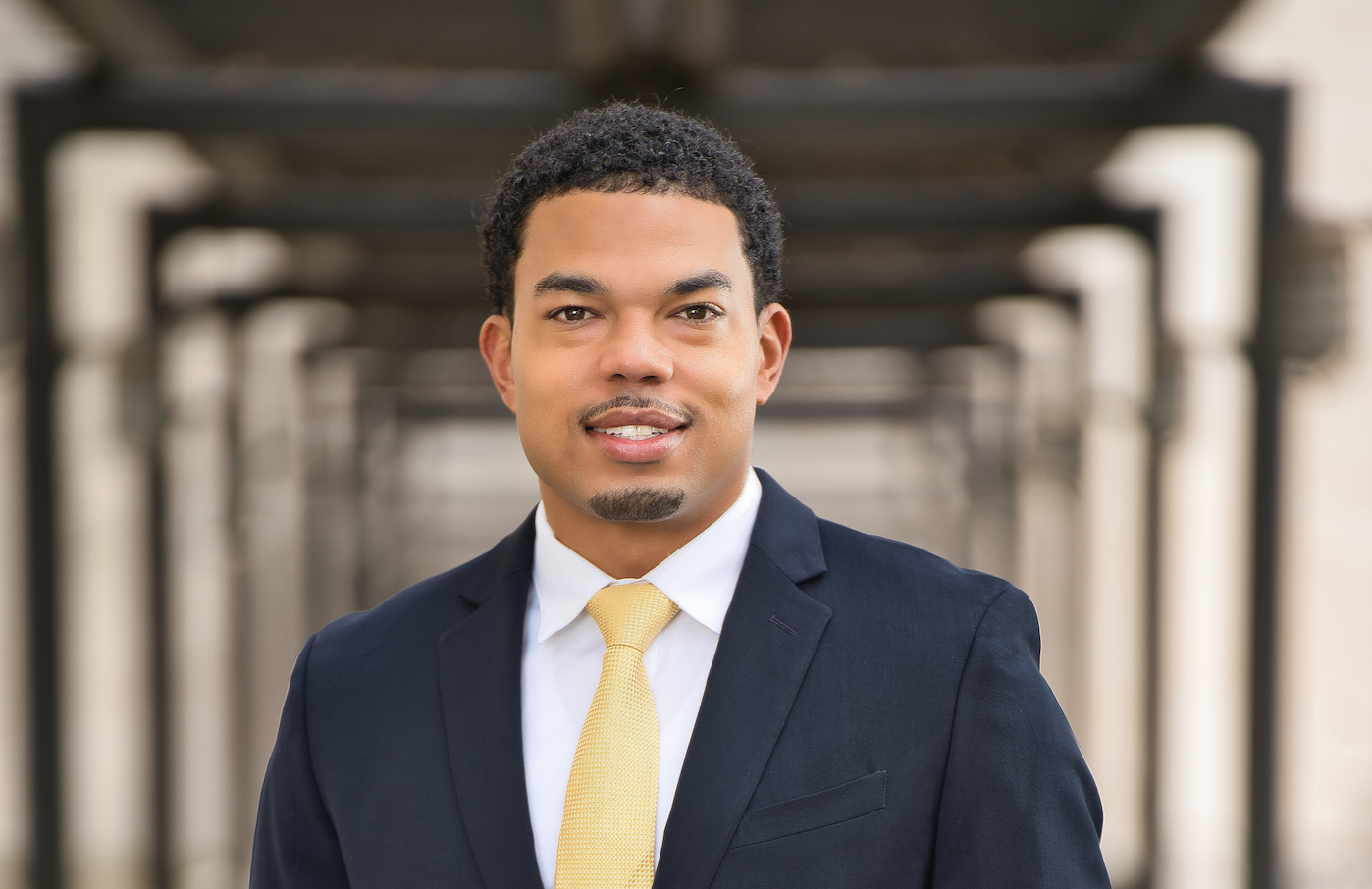
Dr. Daniel J. Thomas III is an assistant professor in the Teaching, Learning, and Culture Department at Texas A&M University. Broadly, his scholarship focuses on the intersection between two strands of research—anti-Black historical discourse and the contemporary experiences of Black men and boys within secondary education. His first strand currently explores the critical, antiracist practices of Black men serving as teacher-coaches. The second strand examines how Black boys encounter and resist anti-Blackness within predominantly White and private Catholic high schools. His work has been featured in the Peabody Journal of Education, Columbia Teachers College Record, Theory & Research in Social Education, Urban Education, Educational Studies, and Race Ethnicity and Education.
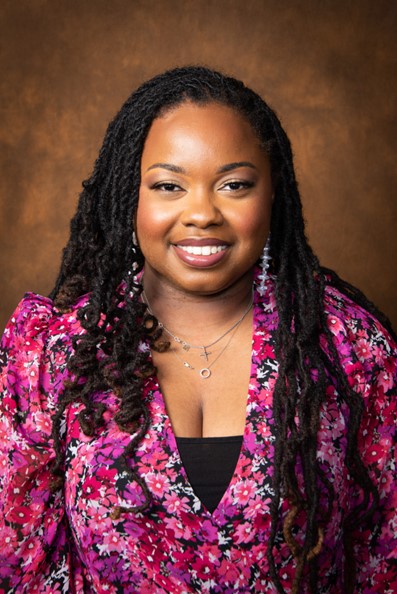
Mariah Deans Harmon (she/her) is an Assistant Professor in the College of Education at Penn State University. She is in the Department of Curriculum and Instruction. Mariah earned her doctorate at Vanderbilt University in the Department of Teaching and Learning at Vanderbilt University’s Peabody College, where she was awarded the National Academy of Education/Spencer Foundation Dissertation Fellowship and the Ford Foundation Dissertation Fellowship.
Her research examines how teacher education programs can better center the developmental needs of minoritized teachers. Specifically, she focuses on supporting Black women pre-service teachers (BWPSTs) as they prepare to enter their classrooms. Her work expands current scholarship outlining BWPSTs’ vast experiential knowledge by focusing on developing such knowledge into pedagogical competence.
She received an M.A. in Education from the University of Mississippi and her B.A. from Vanderbilt University. Before working in academia, Mariah was a middle school English/Language Arts Teacher in Okolona, Mississippi, teaching in the same school as her grandmother 40 years ago. During her time in Okolona, she won Teacher of the Year, one of her most proud teaching moments. Outside of research, Mariah enjoys playing golf, going to brunch, and spending time riding scooters with her husband and son.
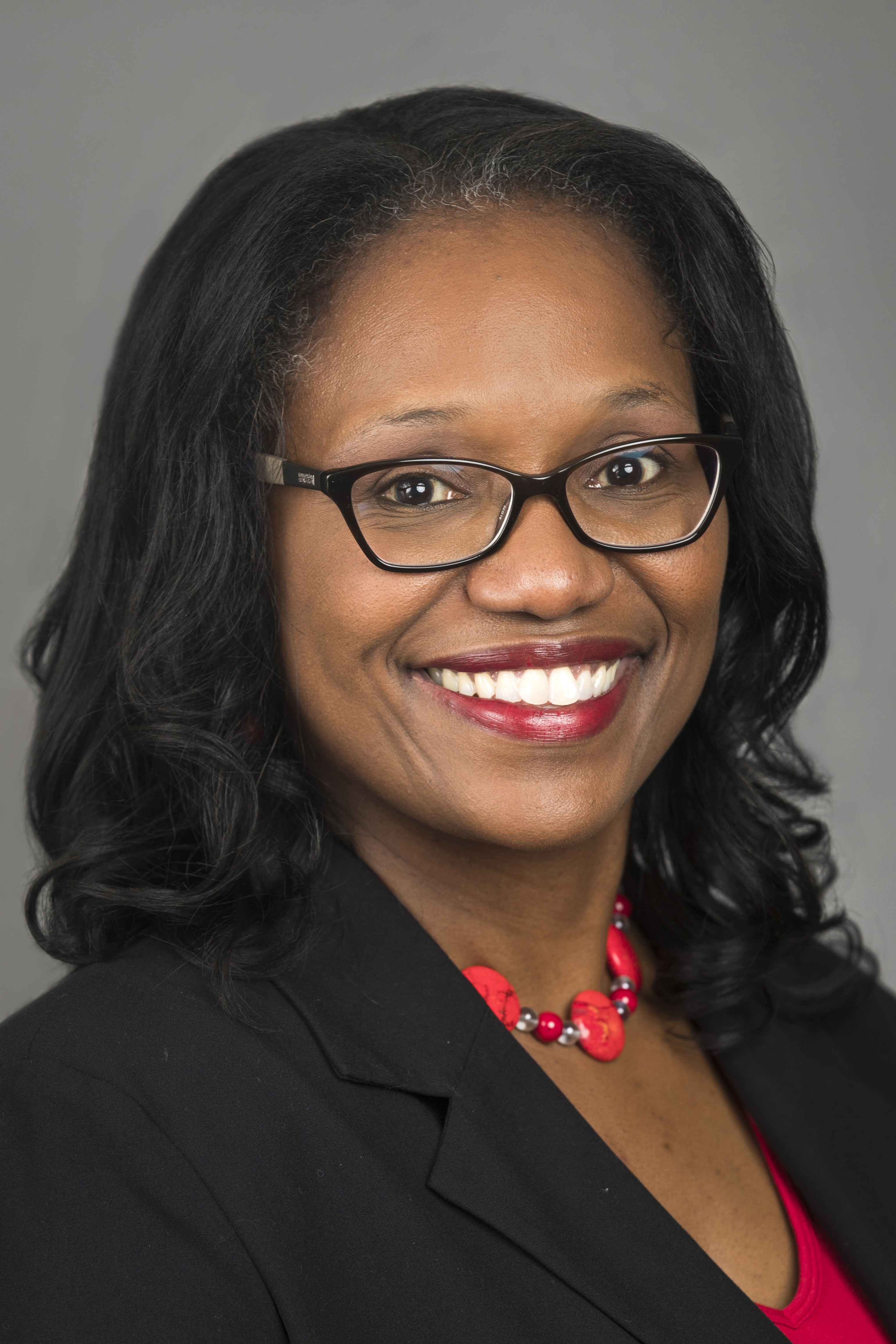
April L. Peters earned a B. S. Ed. from Northwestern University, Evanston, IL, an MSW from Columbia University, and a Ph.D. Educational Policy and Leadership from The Ohio State University in Educational Policy and Leadership. She has worked in the K-12 context in several capacities: middle school teacher, Dean of Students, a high school principal.
Dr. Peters is currently Professor and Associate Chair of the Department of Educational Leadership and Policy Studies in the College of Education at the University of Houston. She is also a Past President of the University Council of Educational Administration (UCEA), a consortium of higher education institutions.
Dr. Peters’ research interests include: (a) mentoring and support for early career administrators; (b) women in school leadership; (c) leadership and urban small school reform; and (d) effective university and district partnerships. Her research has been published in such academic periodicals as: Journal of School Leadership; Teachers College Record; Leadership and Policy in Schools; Educational Administration Quarterly; Journal of Educational Administration; Urban Education; and The International Journal of Qualitative Studies in Education.
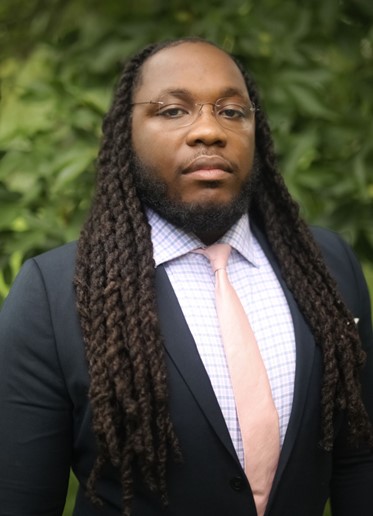
Christopher Etienne is a multi-media strategist with a background in creative writing, journalism, and video production. Educated as a documentary filmmaker and an Africana studies historian, he seeks to use his accolades to spotlight injustice and raise awareness about social issues. Armed with education and empathy, he uses his skillset to instruct and enlighten individuals hailing from impoverished communities. He demonstrates his commitment to continue this work in his professional life. During the spring of 2015, he joined the NJ STEP program staff, where he tutored formerly incarcerated individuals looking to pursue post-secondary education. Since then, he has worked with various organizations such as Rutgers University, SOBA college recovery, and the Renaissance House; where he mentored incoming first-year college students, educated at-risk youth on the importance of black history, and helped recovering addicts reacclimate back into society. Currently, Mr. Etienne works as the STEM Program Coordinator for the Prison Teaching Initiative out of Princeton University. He creates curricula for incarcerated college students seeking opportunities in STEM, leads instructional workshops for instructors and post-doctorate students, and furnishes support for summer interns participating in advanced research projects.
Session Title: Administration/Leadership in Higher Education and the Current Climate in the US.
Session Facilitators: Olga Welch and Carolyn Hodges *This session is sold out*
Session Description: While higher education has played a significant role in defining and modeling the commitment to diversity and inclusion, it continues to struggle to surmount a social divide that has impeded its goals toward racial justice and equity. What is at the root of this rupture? How can we re-envision the role of leadership in higher education to address the increased diversity of voices and identities and close the divide that obstructs the fight for racial and social justice? What can we as individuals do to prevail over the divide?
Olga M. Welch and Carolyn R. Hodges will address these questions in a presentation based on their experiences and lessons learned as teachers, mentors, and leaders in various administrative positions over the years. They will invite participants to engage in a conversation about the challenges and opportunities posed by a commitment to diversity and inclusion, to interrogate their personal vision and position in higher education for achieving that goal, and to create ongoing dialogues that expand the conversation about and participation in change.
Session Title: Classroom Management Special Education and Hip Hop
Session Facilitator: William Hunter
Session Description: Just picture the imagination of hip hop being captured across every inclusive classroom globally. Whether it is emceeing, deejaying, graffiti art, or break dancing, the precision, practice, and power of hip hop being infused in the inclusive classroom is an interesting thought to say the least . This session explores the planning, implementation, and reflection process of a College of Education course that centers on hip-hop based education, building educational communities and the promotion of the development of critical consciousness for students, K-12 educators, and Education Preparation Program Faculty. Research that will be presented include an analysis of faculty member reflections (instructors of the course). This presentation will also feature content on how hip-hop based education can be used as a vehicle to promote engaging inclusive student learning communities within K-12 classrooms and extended learning programs.
Session Title: Disrupting Education Censorship in K-12/Higher Ed
Session Facilitator: Tracey Nance, Takeru Nagayoshi, Monica Washington, & Natasha Wilkins *This session is sold out*
Session Description: Education is receiving unprecedented attention in state and local policy conversations and all too often, this attention is in the form of misinformed attacks on our educators and students. From discussions on what history topics can be taught to what aspects of their own identities educators can share, there is a concerted effort to censor educators who want to make every student feel valued and teach the full history of the United States. The education censorship campaign is backlash to the social progress that occurred after the 2020 murders of George Floyd and Breonna Taylor. Schools across the United States implemented new programs to teach children how to be anti-racist and the importance of diversity. Currently, over 17.7 million children across the United States live in areas potentially impacted by policies that seek to reverse these anti-racist measures.
These censorship policies not only threaten to undermine racial progress, but also threaten the U.S. legal and Civil Rights Protections created in the last 60 years.
It is time to take back the education narrative. Join us to learn about the impact and implication of education censorship and how to engage policymakers to ensure education policy is designed in ways that ensure every child is heard, valued, and seen and educators are supported.
Session Title: Don't Let Them Distract You: Teaching Truths Through a Black Historical Consciousness Lens
Session Facilitator: LaGarrett King *This session is sold out*
Session Description: Much has been made about anti-Black history laws around the United States. The truth is these attacks are not new; Black history has lived through this before. Instead of focusing on anti-Black history for those who were not teaching it anyways, we need to focus on ways to improve our thinking of, learning of, and implementation of the subject in official and unofficial spaces. A few school districts have adopted my Black history framework, Black historical consciousness, and many educators, when done properly with thought and love, have called it transformation in how their Black history courses have been developed. In this presentation, we will explore varied concepts within the eight principles that show the nuances of how we should approach the subject and provide more truth in our schools and communities.
Session Title: Higher Ed and Undocumented Students
Session Facilitator: Cinthya Salazar
Session Description: About 427,000 undocumented students are currently enrolled in higher education across the United States. Most of them pay for the costs of their education out of pocket as a result of state and federal policies that systematically restrict their access to postsecondary opportunities. Within the campus environment, they often experience racist nativist microaggressions from peers, faculty, and staff, and encounter unaware and unhelpful institutional agents who are not prepared to meet their unique student needs. In this presentation, attendees will distinguish the interconnected ecological systems influencing the experiences of undocumented college students. Attendees will also learn about best practices grounded in empirical research that can help them to serve undocumented college students at their respective units and institutions.
Session Title: (Re)membering Who We Are: An Exploration of Black Women Teachers
Session Facilitator: Mariah Deans Harmon
Session Description: In this presentation, I explore hauntology as a lens to understand the complex history of four focal Black women pre-service teachers (BWPST)s. I use the concepts of ghosts, hauntings, and intersectionality to analyze these BWPSTs experiences as K-16 students and pre-service teachers and to situate them in the diverse and expansive history of Black women teachers and girls in this country. By unpacking these women’s complex histories, we can engage in Freedom Dreaming allowing us to step outside of the typical discussions around reform. Freedom Dreaming pushes us to reject what is now in an effort to imagine what can be. If teacher education programs become sites of healing, then subsequently the next generation of students will learn in more loving and inclusive environments. In this presentation, we will discuss strategies for prioritizing growth, joy, healing, and (re)clamation in teacher education to radically change the landscape of education in this country.
Session Title: School Leadership and the Current Climate of Racial Justice Work in the U.S.
Session Facilitator: April Peters Hawkins *This session is sold out*
Session Description: In this interactive session we will briefly discuss the history of racism and the quest for racial justice in educational contexts. Historically, racially marginalized students have been segregated excluded or from educational opportunities. Additionally, racially marginalized teachers and leaders have been excluded as well. These practices continue to influence educational experiences of all students today. Using demographic, student achievement, and other forms of data relevant to leading schools we will engage in substantive discussion about the connection between the history of racism, racial justice, and school leadership and how these issues influence school leadership in the current context and moreover, what can be done to address issues of racial inequity. Additionally, participants will consider the ways that policies (i.e. state certification, district leadership pipeline, etc.), preparation (i.e. the curricular and experiential content of leadership preparation programs), politics (i.e. legislation that bans CRT instruction, book banning); and practices (e.g. recruitment of teachers and leaders) inform this work.
Session Title: Supporting the Learning and Development of Black Student-Athletes
Session Facilitator: Dr. Daniel J. Thomas III
Session Description: The experiences of secondary and collegiate Black male student-athletes in predominantly white schools vacillates from intense adulation within the boundaries of their athletic arena to extreme repugnance without the signifiers of their respective sport. Few student populations constantly pivot between applause-abhorrence and superhuman-subhuman binaries than Black male student-athletes. While predominantly white and private Catholic high schools and PWI’s are widely viewed as bastions of scholastic and academic opportunities for Black male student-athletes, data shows that these spaces simultaneously function as anti-Black sites of exploitation. In this session, topics will include an exploration of: 1) Black boys’ experiences with phallic-based Negrophobia in predominantly White catholic schools, 2) the domestic and global human trafficking of Black student-athletes via the abuse of F1 Visas, and 3) the pathway for Black male student-athletes to enter the field of education as teachers and professors.
Session Title: The Supreme Court, Race, Education, and America: Matthew Shaw
Session Facilitator: Matthew Shaw *This session is sold out*
Session Description: This session will explore the Supreme Court’s recent decisions on abortion care, affirmative action, immigrant rights, student loans, and voting rights; and preview emerging controversies ranging from critical race theory bans, anti-LGBTQ legislations, and academic freedom with an emphasis on race in the United States of America and the role of mixed and multiple-methods research in engaging questions likely to come before the Court.
Session Title: Teaching and Learning in Prison Contexts
Session Facilitator: Chris Etienne
Session Description: Punitive disciplinary practices are an ongoing issue impacting students of color and effectively fostering disengagement in urban classrooms. According to the National Analyses of Suspension by the UCLA Civil Rights Project, roughly 11 million instructional days are lost to out-of-school suspensions a year; this number becomes even more troubling when considering that these disciplinary practices place students on a forward trajectory toward incarceration. According to the Department of Education, "Students assigned to a school that has one standard deviation higher suspension rate are 15 to 20 more likely to be arrested as adults". In this presentation, we will take things a step further and argue that punitive disciplinary practices do not simply increase a student's likelihood of incarceration; they groom students for prison by mirroring models enforced by the Department of Corrections. Sociologist Paul Hirschfeild states that extreme punitive disciplinary measures are called the criminalization of school discipline. Students in low-income communities are subjected to, drug tests, locker searches, surveillance, and even arrests on school grounds; the only way to combat these ongoing issues is by removing carceral culture from our classrooms and adopting human-centered teaching practices; this means distancing ourselves from crime and punishment models in the classroom environment, learning cultural competence, and challenging authoritarian educational approaches.
A Special Thank You to Our Co-Sponsors!
Vanderbilt Peabody Equity, Diversity, and Inclusion
Vanderbilt Divinity School Cal Turner Program for Moral Leadership
Middle Tennessee State University, College of Education
Teachers College, Columbia University
TeachingWorks at Marsal Education University of Michigan
Every Iris Registration user must create an account for security purposes. This login will help keep your information safe as you register for the conference.
After clicking Register Now above, you will reach this page example below. Click Sign Up to make an account with your email and a password and then proceed to register for the conference.
Example:
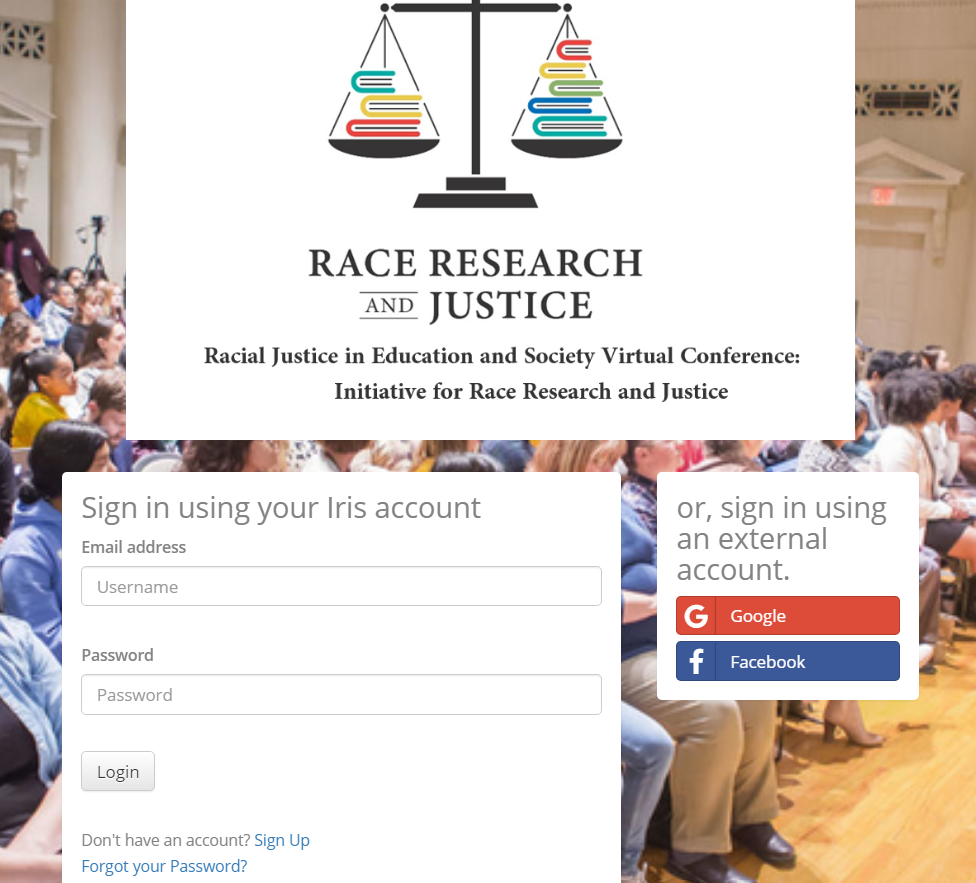
*If you have to leave your registration and are prompted for a code when you return, please use RRJ23.*
Example:

Questions? Please email us at rrj@vanderbilt.edu.
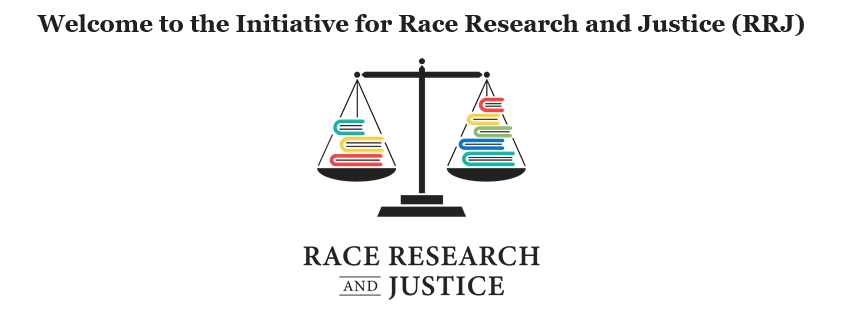
Dr. Rich Milner founded the Initiative for Race Research and Justice (RRJ) in the fall of 2018. His goal was to centralize and bring together research and researchers focused on race inside and outside the field of education. RRJ has an overt emphasis on studying and impacting practices and policies toward racial justice. For instance, how do we build from innovative, interdisciplinary race research to improve the human condition?
Since 2018, the initiative has expanded under the collaboration and support of Dr. Wonder Drake and Dr. Graham Reside.
In short, RRJ’s work is organized around three main focal areas: (1) conducting high quality research on race; (2) using new and expanded knowledge to improve practices, policies, society, and the overall human condition; and (3) sharing and disseminating knowledge, resources, and tools in collaboration with communities, organizations, and institutions for racial justice.
Please click here to read and subscribe to our newsletter.
